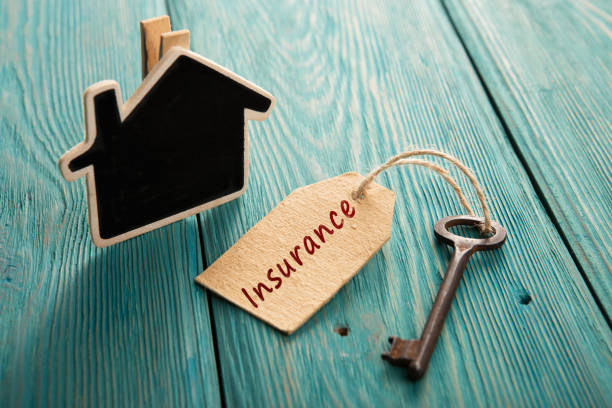Owning rental property can be a lucrative investment, but it also comes with its share of risks. From property damage to liability issues, landlords face various challenges that can impact their financial stability. This is where landlord insurance comes in. Understanding and investing in the right landlord insurance policy is essential for minimizing risks and protecting your investment. Here’s everything property owners need to know about minimizing risks with landlord insurance.
Understanding Landlord Insurance
What Is Landlord Insurance?
Landlord insurance is a type of policy designed specifically for rental properties. It provides coverage for property damage, liability claims, and lost rental income due to covered perils. Unlike homeowners insurance, which covers owner-occupied properties, landlord insurance is tailored to the unique risks associated with renting out a property.
Key Differences from Homeowners Insurance
While homeowners insurance covers the dwelling, personal property, and liability, landlord insurance goes a step further. It not only covers the physical structure but also includes protections specific to rental activities, such as loss of rental income and landlord liability. This distinction is crucial for property owners who rent out their homes or investment properties.
Core Components of Landlord Insurance
Property Damage Coverage
One of the primary components of landlord insurance is property damage coverage. This protects against physical damage to the building caused by covered perils such as fire, storm damage, vandalism, and certain types of water damage. This coverage ensures that the property can be repaired or rebuilt without significant financial burden to the landlord.
Liability Protection
Liability protection is another critical aspect of landlord insurance. It covers legal and medical expenses if a tenant or visitor is injured on the property and holds the landlord responsible. This protection can help cover legal fees, medical bills, and settlements or judgments, providing crucial financial protection in the event of a lawsuit.
Loss of Rental Income
If a rental property becomes uninhabitable due to a covered peril, loss of rental income coverage compensates the landlord for the lost rental revenue during the repair period. This ensures that the landlord can continue to meet financial obligations even when the property is not generating income.
Additional Coverage Options
Vandalism and Theft
While standard landlord insurance covers property damage, adding specific coverage for vandalism and theft can be beneficial. This coverage protects against intentional damage caused by tenants or third parties, as well as theft of items provided by the landlord, such as appliances or fixtures.
Flood and Earthquake Insurance
Standard landlord insurance policies typically do not cover natural disasters like floods and earthquakes. Landlords in areas prone to these events should consider purchasing additional flood or earthquake insurance to protect their properties against these specific risks.
Legal Expense Coverage
Legal disputes with tenants can be costly and time-consuming. Legal expense coverage helps cover the cost of legal representation and court fees associated with evictions, disputes over lease agreements, and other legal issues related to the rental property.
Choosing the Right Policy
Assessing Your Needs
Every rental property is unique, and so are the insurance needs of each landlord. Assessing the specific risks associated with your property is the first step in choosing the right policy. Consider factors such as the property’s location, age, and condition, as well as the type of tenants you typically rent to.
Comparing Policies and Providers
Not all landlord insurance policies are created equal. Comparing policies from different providers can help you find the best coverage at a competitive price. Look for reputable insurance companies with strong financial ratings and positive customer reviews. Don’t hesitate to ask for detailed explanations of what each policy covers and any exclusions that may apply.
Understanding Policy Exclusions
Exclusions are specific situations or events that are not covered by the insurance policy. Common exclusions in landlord insurance include wear and tear, intentional damage by the landlord, and certain types of water damage. Understanding these exclusions is crucial to avoid unexpected out-of-pocket expenses.
Best Practices for Risk Management
Regular Property Maintenance
Regular maintenance and inspections can prevent many common issues that lead to insurance claims. Keeping the property in good condition not only protects your investment but also reduces the likelihood of tenant injuries and liability claims. Addressing maintenance issues promptly and ensuring that safety features like smoke detectors and security systems are functioning correctly are essential steps in risk management.
Tenant Screening
Thorough tenant screening can help minimize risks associated with rental properties. Conducting background checks, verifying employment and income, and contacting previous landlords can provide valuable insights into a tenant’s reliability and likelihood to care for the property. A well-screened tenant is less likely to cause damage or engage in activities that could lead to liability claims.
Clear Lease Agreements
A clear and comprehensive lease agreement is vital for minimizing disputes and protecting your rights as a landlord. Ensure that the lease outlines responsibilities for maintenance, rent payment terms, and rules for the property’s use. Having a well-drafted lease can prevent misunderstandings and provide a strong legal foundation in case of disputes.
Filing a Claim
Understanding the Process
Knowing how to file an insurance claim properly is essential for a smooth and efficient resolution. Familiarize yourself with your insurance provider’s claim process, including the documentation required and the timeline for reporting incidents. Promptly reporting damages or incidents can expedite the claims process and ensure that repairs and compensation are handled swiftly.
Keeping Detailed Records
Maintaining detailed records of your property and any incidents can significantly aid in the claims process. Keep a record of all communications with tenants, maintenance and repair receipts, and photos of the property before and after any damage. Detailed documentation can support your claim and help ensure that you receive the appropriate compensation.
Conclusion
Landlord insurance is an essential tool for minimizing risks and protecting your rental property investment. By understanding the core components of landlord insurance, assessing your specific needs, and implementing best practices for risk management, you can safeguard your property and financial well-being. Investing in comprehensive landlord insurance is a proactive step that every property owner should take to ensure long-term success and peace of mind in the rental market.










Leave a Reply